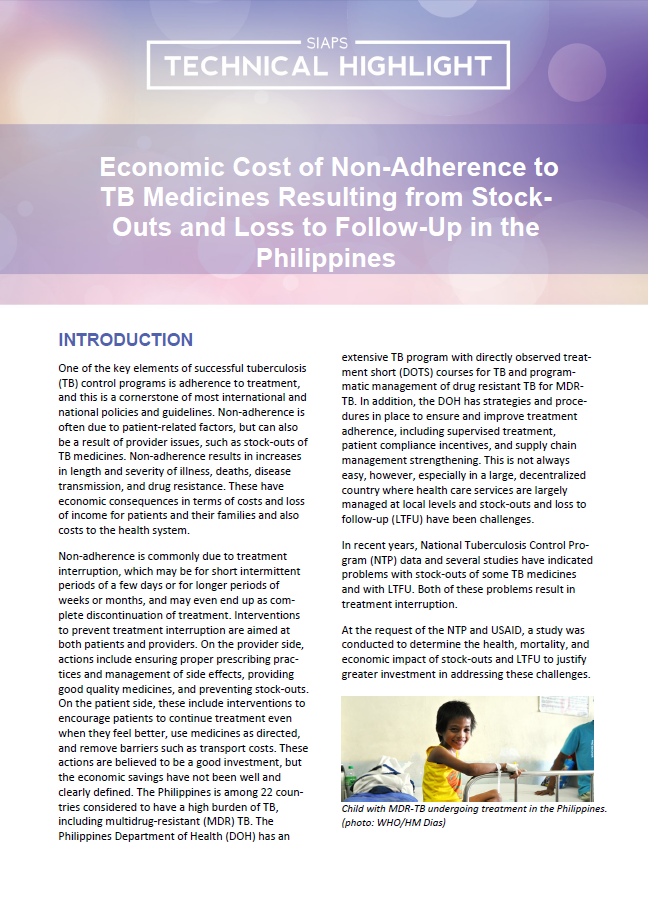
One of the key elements of successful tuberculosis (TB) control programs is adherence to treatment, and this is a cornerstone of most international and national policies and guidelines. Non-adherence is often due to patient-related factors, but can also be a result of provider issues, such as stock-outs of TB medicines. Non-adherence results in increases in length and severity of illness, deaths, disease transmission, and drug resistance. These have economic consequences in terms of costs and loss of income for patients and their families and also costs to the health system.


